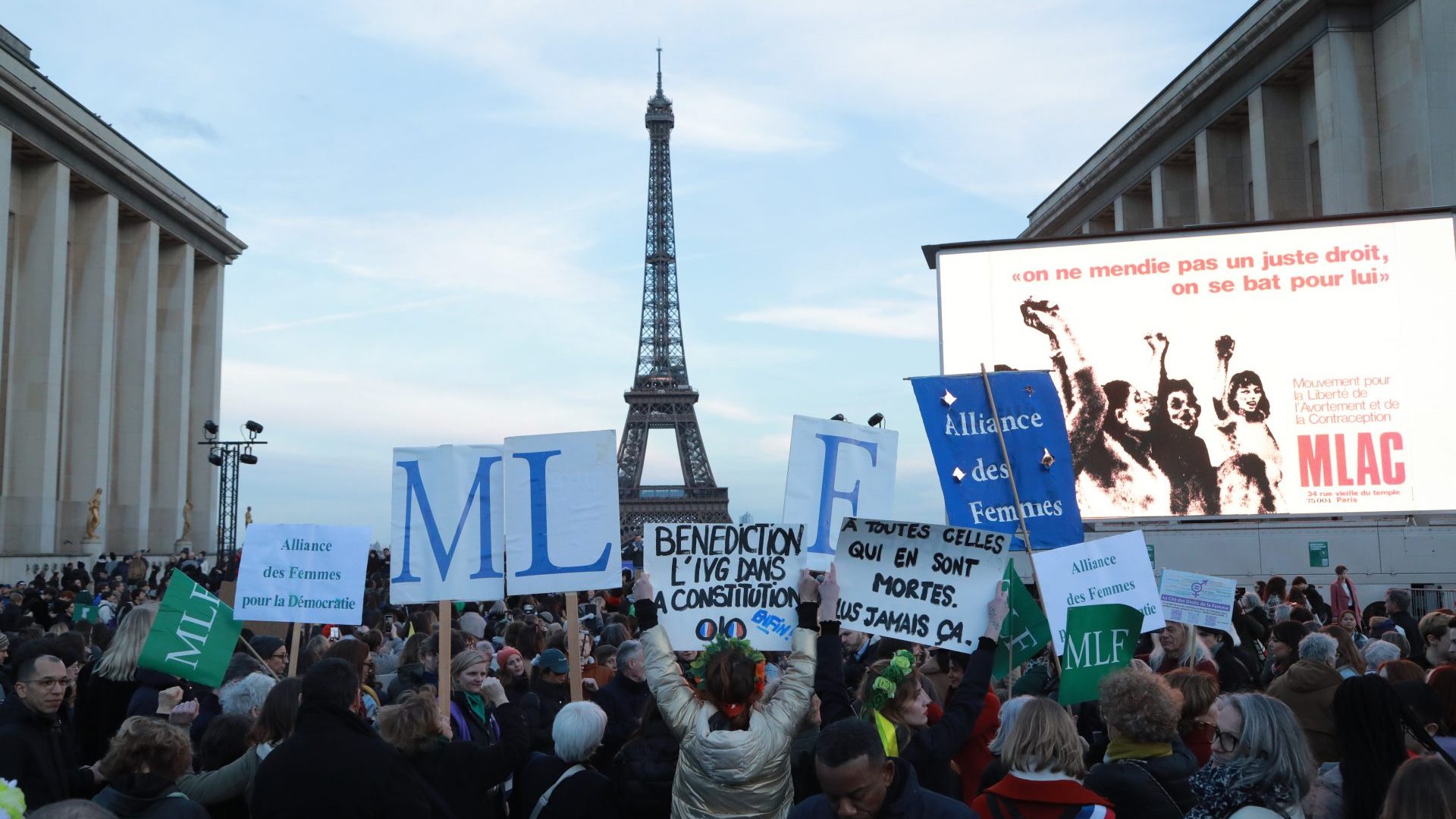The symbolism of it all felt poignant. 577 MPs and 348 senators met up at Versailles, a place so deeply connected to the past, and together they voted for a brighter future. Because of the nature of the proposed change, three-fifths of them had to vote in favour of the text. In the end, 780 lawmakers, out of 925 eligible ones, voted to make abortion a constitutional right in France.
“Today, the present must respond to history. To enshrine this right in our constitution is to close the door on the tragedy of the past and its trail of suffering and pain. It will further prevent reactionaries from attacking women,” said Gabriel Attal, the youthful Prime Minister.
Earlier this year, equalities and discrimination minister Aurore Bergé described the vote as “one of the most important and remarkable of this parliament”. It was the first joint parliamentary congress since 2008.
Why now? Well, there were clues in Attal’s speech. “Let’s not forget that the train of oppression can happen again,” he said. “Let’s act to ensure that it doesn’t.” It isn’t hard to guess what he was referring to. In 2022, the Supreme Court overturned Roe v Wade, the ruling which had made abortion a constitutional right in the US. Many states in the US have now returned to cruel and draconian abortion laws.
Sadly, our neighbours over the pond aren’t the only country to have rowed back on abortion rights. Poland took a liberal approach to abortion for decades but, bit by bit, conservative politicians managed to make the laws tighter and tighter. As recently as 2020, the country’s chief justice argued that the constitution could not allow for the abortion of malformed foetuses. The law was changed a year later, becoming even more restrictive as a result.
Donald Tusk, the new Prime Minister has said that overturning those strict laws will be a priority, but even he admits that it will be easier said than done. This is why France’s move matters; any future government wishing to make it harder for women to have abortions will find it tough to do so, if not impossible.
It is also why Parliament’s upcoming vote on amendments to the Criminal Justice Bill matters. As things currently stand, abortion technically remains a crime in Britain, with women able to get jailed under the 1861 Offences Against the Person Act. The only reason they do not is because the Abortion Act 1967 set out very specific cases in which it isn’t illegal.
Any abortion happening outside those circumstances – conducted after 24 weeks, for example – remains a criminal matter. This amendment, put forward by Labour MP Dame Diana Johnson, would change that. A survey run by BPAS last month showed that 55% of MPs did not think that women should be prosecuted for having abortions outside the time limit.
Does this mean it will go through the House of Commons? Hopefully. Several female MPs have already spoken up about the threats and abusive messages they’ve received about the upcoming vote. Internally, there are worries that the issue will be dragged out, as it still feels very controversial.
There is no doubt that it can be an emotive issue for many, but it should also be a no-brainer for anyone who believes in a woman’s right to choose. The move would also not be a first in Britain, as abortion was decriminalised in Northern Ireland back in 2019. England and Wales would merely be following suit.
Crucially, it would change the lives of women going through something horrible and traumatic. According to the Times, the last five years have seen an “unprecedented” rise in women getting accused of having had an illegal abortion, “including among women who have had natural stillbirths or premature labours”.
Speaking to the newspaper, co-chairman of the British Society of Abortion Care Providers Johnathan Lord said that “the law is causing life-changing harm not just to the women involved, but to their children and family. I’ve never witnessed such cruelty and harm as I’ve seen in the past couple of years, all caused by a law that has its origins in medieval society.”
Is this really the country we want to remain? France has made itself fit for the future and so can we. Women’s bodies are their own, and it is time for the law to truly recognise it once and for all.











